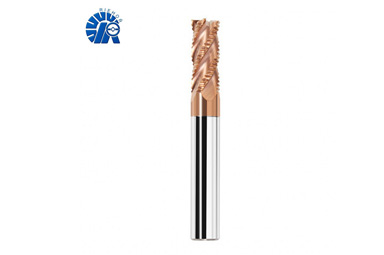The Benefits of Carbide Cutting Tools
Carbide cutting tools have become a preferred choice in various industries, offering a range of advantages over traditional tool materials. From increased durability to enhanced precision, the benefits of carbide cutting tools make them a valuable asset in machining and cutting applications.
1. Exceptional Hardness and Wear Resistance
Carbide cutting tools, typically made from tungsten carbide, exhibit exceptional hardness. This hardness translates to outstanding wear resistance, making carbide tools suitable for prolonged use without significant loss of cutting edge integrity. This durability leads to longer tool life and reduced downtime for tool replacement.
2. High Heat Resistance
Carbide cutting tools can withstand high temperatures generated during machining processes. This heat resistance minimizes the risk of tool deformation or failure due to excessive heat, allowing for consistent and reliable performance even in demanding applications.
3. Improved Cutting Speeds
The hardness and heat resistance of carbide cutting tools contribute to their ability to withstand higher cutting speeds. This results in increased productivity as machining operations can be performed more efficiently without compromising tool integrity.
4. Enhanced Precision and Accuracy
Carbide cutting tools provide superior precision and accuracy in machining applications. Their sharp cutting edges and resistance to wear ensure consistent and tight tolerances in the finished products. This is particularly beneficial for industries that require high precision, such as aerospace and medical device manufacturing.
Explore more:What Is Roll Top Fence?
5. Versatility in Machining Applications
Carbide cutting tools are versatile and suitable for various machining applications, including milling, turning, drilling, and threading. Their adaptability across different processes makes them a go-to choice for manufacturers working with diverse materials and project requirements.
6. Resistance to Chemical Wear
In addition to mechanical wear resistance, carbide cutting tools exhibit resistance to chemical wear. This makes them suitable for machining materials that may otherwise corrode or degrade traditional tool materials. The resistance to chemical wear extends the tool's lifespan and maintains cutting performance.
7. Cost-Effective in the Long Run
While carbide cutting tools may have a higher initial cost compared to some other materials, their extended tool life and reduced need for frequent replacements result in long-term cost savings. The overall cost-effectiveness makes carbide tools a wise investment for businesses aiming to optimize machining operations.
8. Environmental Benefits
The longevity and durability of carbide cutting tools contribute to environmental sustainability. Reduced tool consumption and waste generation lead to a smaller environmental footprint, aligning with the growing focus on eco-friendly manufacturing practices.
Conclusion
In summary, the benefits of carbide cutting tools encompass exceptional hardness, wear resistance, high heat resistance, improved cutting speeds, enhanced precision, versatility, resistance to chemical wear, and long-term cost-effectiveness. These advantages position carbide cutting tools as a valuable asset for industries seeking efficient and reliable solutions for their machining needs.



